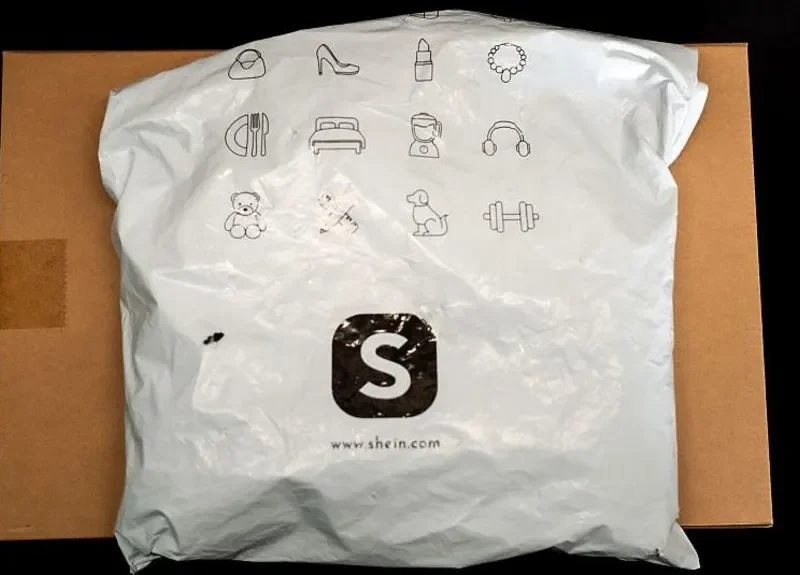Former President Donald Trump has ended a duty-free exemption for low-value imports, leading to increased costs for U.S. shoppers using platforms like Shein and Temu.
These Chinese e-commerce companies had benefited from the “de minimis” rule, which allowed goods under $800 to enter the U.S. without import taxes or duties.
While supporters said the rule simplified customs procedures, both Trump and President Joe Biden criticized it for harming U.S. businesses and enabling illegal imports like drugs.
What was the De Minimis Rule?
De minimis, a Latin phrase meaning “of the smallest,” refers to a U.S. trade rule established by Congress in 1938 to reduce the cost of collecting small import duties.
In the 21st century, following several increases to the threshold, the rule allowed retailers to ship items valued under $800 to U.S. customers without incurring duties or taxes.
According to U.S. Customs and Border Protection (CBP), shipments under this exemption made up over 90% of all cargo entering the U.S.

Chinese e-commerce giants Shein and Temu gained a major advantage from the loophole.
Their aggressive marketing campaigns, featuring extremely low prices, drew in millions of U.S. buyers.
The de minimis rule played a key role in keeping their prices down.
While neither company responded to BBC’s request for comment, both recently issued near-identical statements noting that global trade and tariff changes have raised their operating costs, prompting “price adjustments” starting 25 April.
Why Did Trump Eliminate the Loophole?
Trump initially suspended the loophole in February, but the move was quickly put on hold due to logistical challenges faced by customs, couriers, and online retailers.
During that brief halt, the U.S. Postal Service stopped accepting packages from mainland China and Hong Kong.
The latest executive order aims to combat the illegal import of synthetic opioids like fentanyl, noting that many Chinese shippers disguise drugs in low-value parcels to exploit the exemption.
The order highlighted that fentanyl alone causes about 75,000 U.S. deaths annually.
Although not a new idea—Biden’s administration also proposed reforms last year citing misuse of the rule—Trump’s decision aligns with his broader efforts to restrict Chinese imports.
Since returning to office in January, Trump has introduced tariffs as high as 145% on goods from China, with some combined levies potentially reaching 245%.
U.S. officials have also pointed to the rise of companies like Temu and Shein as a factor overwhelming border operations, with package volumes under the loophole growing from roughly 140 million ten years ago to over one billion in the past year.
How Will This Impact Online Buyers?
Packages sent to the U.S. from mainland China and Hong Kong valued at $800 or less are now taxed at 120% or face a flat fee—starting at $100 and increasing to $200 in June.
Even before these import taxes took effect, U.S. shoppers experienced price hikes, as Shein and Temu raised prices ahead of the 2 May deadline, citing global trade and tariff changes.
The American Action Forum estimated that eliminating the exemption could add $8 to $30 billion in annual costs, likely passed on to consumers.
Similar tax-free import rules have also benefited Chinese e-retailers in the UK and EU.
Following the U.S. example, the UK is reviewing its own policy, which currently exempts items under £135 from import taxes.
Chancellor Rachel Reeves noted these inexpensive imports are hurting domestic retailers.
Meanwhile, the EU has proposed eliminating duty-free allowances for parcels under €150, suggesting UK and EU consumers may also face rising prices soon.
Are Changes Coming to U.S. Border Inspections?
Packages covered by the exemption were already subject to standard inspections, including checks for illegal drugs, and officials say most synthetic opioids still enter through the U.S.-Mexico border.
Some experts argue that removing the exemption is unlikely to significantly reduce drug trafficking or solve issues facing domestic manufacturers.
There are also fears that the policy change will further burden U.S. border agents, who are already stretched thin tackling smuggling.
The National Foreign Trade Council (NFTC), which supports open trade, warned that scrapping the de minimis rule could divert Customs and Border Protection’s (CBP) attention from high-risk areas like the southern border—where most illegal substances enter.
They added that CBP would either need to invest heavily in hiring and training new staff or reassign current agents from already overloaded duties.











